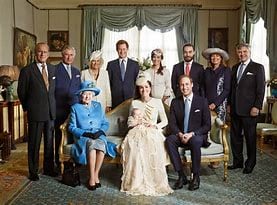We’ve all seen the photos of the Royal Christening. They are clearly of a happy family, enjoying the day. What if, though, you and the other parent are not agreed about a christening taking place in the first place? There are lots of decisions we have to make as parents and guardians for our children ranging from the little things (red or blue shoes) to the big things (christenings, schools, health care). Hopefully, both parents will be able to talk it through and come to a decision that they are both comfortable with. But what if you can’t?
Well, the right for a parent to make decisions for their child stems from the parent having parental responsibility for their child. Parental responsibility is the label attached to the bundle of rights and responsibilities a parent has in respect of their child. Others in addition to parents can have parental responsibility for a child but mostly, it will be the parents. If your child is aged 15 or under and both parent’s names are on the birth certificate, both parents will have parental responsibility. There are some quirks of your child is older than 15 and younger than 18 – the law was a bit different before then.
Parents both have the same status as each in relation to their children, unless it is changed by a court order. Parents are expected to discuss the big decisions together – whether they are in a family together or separated. If I had a £1 for every time I heard a judge say that they would rather the parents came to an agreement in respect of their children than the court having to decide, I would be writing this article from a beach in Acapulco. (I’m not. The court system doesn’t give out £1 coins willy nilly).
The point is that it is best for you as parents to decide for your own children and your own families. But what if you really, really can’t? What are the options? Quite limited really. They are:
- Mediation – a process you both have to agree to and a guided discussion via a mediator to see if there is any chance that you can compromise and agree.
- Arbitration – again, a process that you both have to agree to but where a neutral arbitrator (a bit like a judge) will decide the question for you. The decision will be binding. The benefits over court proceedings are speed, flexibility and confidentiality.
- Court proceedings – a last resort. You’re asking for a ‘specific issue order’ where the court is asked to decide the ….ah…’specific issue’. (Not an imaginative name!) Slow, expensive and can be rather stressful for the parents involved. It also does not do much good to the ongoing parental relationship. And remember, you as parents are connected via your children for ever. Don’t make your children suffer for the relationship issues between you and the other parent.
Emotions run high when it comes to our children and in times of stress and emotional turmoil, making decisions can be really difficult. If you are struggling, contact us. We can do as little or as much as you need. Sometimes, all you will want is a discussion with someone who is neutral or on the outside. We’re experienced, calm and approachable. We can help.

